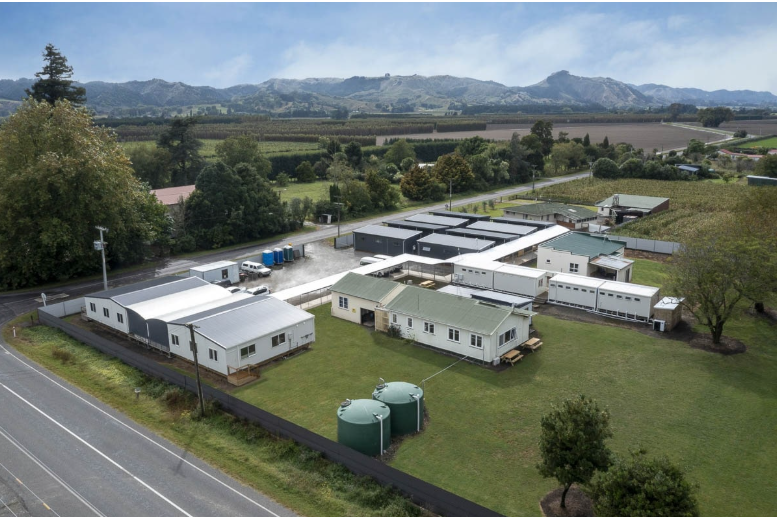Portable buildings are becoming increasingly popular across New Zealand as people search for flexible, affordable, and sustainable space solutions. Whether for business, education, healthcare, or personal use, these structures provide an adaptable option that can be set up quickly and moved as needed. With growing demand, portable buildings are no longer seen as temporary stop-gaps but as reliable, long-term investments that meet strict building standards while remaining cost-effective.
In this article, we’ll explore the most common and creative uses of portable buildings in NZ, why they are such a practical choice, and how they are shaping the way Kiwis think about modern construction.
Portable Buildings for Construction Site Offices
One of the most widespread applications of portable buildings in New Zealand is within the construction industry. Large and small projects alike need functional office spaces that can move with the site. Portable offices provide contractors and project managers with a clean, professional, and private workspace close to the action.
Instead of relying on makeshift shelters or renting costly premises, construction companies use portable buildings for staff meetings, documentation, and day-to-day planning. Because they can be quickly delivered and set up, delays are avoided, and workers have immediate access to facilities they need. When the project wraps up, the building can be transported to the next job, making it a practical long-term investment.
Portable Classrooms and Education Facilities
Education is another sector where portable buildings shine. Schools across New Zealand often face challenges with fluctuating enrolment numbers and limited budgets for expansion. Portable classrooms provide a fast, compliant, and cost-effective way to add learning spaces without waiting for traditional construction timelines.
These buildings can be designed to meet Ministry of Education standards, ensuring they are safe, comfortable, and suitable for young learners. They also give schools the flexibility to move classrooms around as demand changes. Portable libraries, science labs, or multipurpose halls are also increasingly being used to support NZ’s growing communities.
Pop-Up Retail Shops and Commercial Spaces
Retailers are turning to portable buildings for innovative commercial solutions. Pop-up stores, seasonal shops, and promotional spaces can be quickly established in busy town centres or event venues. Businesses can test new markets without committing to expensive long-term leases.
For example, a portable café or shop in Christchurch can later be transported to Hamilton if the business decides to expand or experiment with a different location. Their mobility and relatively low cost make them perfect for entrepreneurs who want flexibility without sacrificing professionalism.
👉 If you’re considering setting up a commercial space that can adapt to your changing needs, take a look at our transportable buildings in NZ versatile solutions for commercial use.
Healthcare and Medical Applications
Portable buildings are proving invaluable for healthcare providers in New Zealand. From temporary clinics and vaccination centres to onsite first-aid rooms at sporting events, these structures are designed to be hygienic, secure, and fully functional.
During emergencies or natural disasters, portable medical units can be deployed quickly to provide essential care. Because they are modular, they can also be expanded with additional rooms or specialized facilities such as dental units, triage centres, or isolation wards. For rural and remote NZ communities, this mobility makes healthcare more accessible than ever.
Accommodation and Residential Uses
Another growing use of portable buildings in New Zealand is residential accommodation. With housing affordability challenges, many Kiwis are turning to portable structures as granny flats, guest rooms, or even primary residences. They are also popular for those working from home who want a quiet backyard studio or creative space.
These buildings are not only affordable but also designed to comply with local regulations, ensuring safety and durability. Many feature insulation, power fittings, and stylish finishes that rival traditional homes. Homeowners appreciate the speed of setup and the fact that portable buildings can often be relocated, giving them flexibility that standard housing cannot.
Why Portable Buildings are Growing in Popularity in NZ
So, why are portable buildings in such high demand across New Zealand? The answer lies in their affordability, sustainability, and adaptability. Here are some key advantages:
- Fast Setup: Traditional building projects can take months or years, while portable buildings can often be installed within days.
- Cost Savings: Labour costs, material waste, and long timelines are reduced, making them an economical choice.
- Mobility: Portable buildings can move from one site to another, saving money on new construction.
- Eco-Friendly: Many are built with sustainable materials, and their reusability helps reduce waste.
- Customisation: They can be tailored for offices, schools, accommodation, or retail, meeting diverse requirements.
For businesses and individuals looking for smart, flexible building options, portable buildings represent the future of adaptable construction in NZ.
Global Context: Portable Buildings Around the World
Portable buildings are not unique to New Zealand—they’re used worldwide. According to Wikipedia, these structures are defined as prefabricated, transportable spaces designed for temporary or permanent use. They are widely applied across sectors including education, healthcare, events, and military operations.
This global adoption highlights their practicality and reinforces their role as a proven, versatile solution for modern space needs.
Conclusion
Portable buildings have transformed from simple temporary shelters into fully functional, versatile spaces that support education, healthcare, retail, residential living, and construction in New Zealand. Their quick installation, affordability, and eco-friendly design make them ideal for today’s fast-moving and budget-conscious world.
As demand grows, more Kiwis are discovering the endless possibilities portable buildings offer—from schools to home offices and retail outlets. If you’re considering adding adaptable, sustainable space to your property or business, portable buildings could be the smartest solution.




